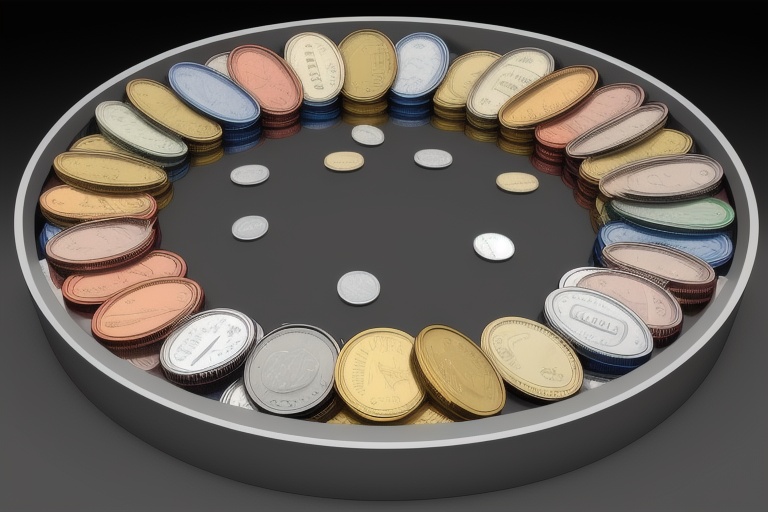The world of rare coin investing is one that not only fascinates collectors but also offers the promise of financial gain. The allure of rare coins lies in their historical significance, their aesthetic appeal, and their potential to appreciate in value over time. Unlike the stock market, where the value of shares is determined by the performance of the underlying company, the worth of rare coins derives from factors such as scarcity, condition, design, and historical importance. Each coin is distinct, sporting its own unique story and character—a facet that attracts myriad collectors to the hobby.
The world of rare coin investing is one that not only fascinates collectors but also offers the promise of financial gain. The allure of rare coins lies in their historical significance, their aesthetic appeal, and their potential to appreciate in value over time. Unlike the stock market, where the value of shares is determined by the performance of the underlying company, the worth of rare coins derives from factors such as scarcity, condition, design, and historical importance. Each coin is distinct, sporting its own unique story and character—a facet that attracts myriad collectors to the hobby.
Grasping the Nuances of Coin Valuation
Understanding the true value of rare coins requires a nuanced approach. For example, two coins from the same series, featuring the same design and mint mark, and graded similarly by professionals, may still present contrasting values. Minute differences in preservation and aesthetic qualities, such as luster and strike, can greatly influence how collectors and investors value a particular coin.
For those who are new to the world of numismatics—the study and collecting of coins and currency—education is paramount. One of the first steps for an aspiring numismatist or investor is seeking the guidance of an experienced mentor. A mentor with a wealth of knowledge in rare coin valuation can offer invaluable insights, helping beginners sidestep common pitfalls and make informed purchasing decisions.
Educational resources abound for the eager learner. By immersing oneself in books and scholarly articles, attending coin shows, and participating in discussions at coin clubs, a budding collector can build a foundation of knowledge. Serious collectors and investors recognize the importance of continuous learning to stay abreast of market trends and emerging opportunities.
The American Numismatic Association and Its Role
For those looking to deepen their understanding and connect with the community, the American Numismatic Association (ANA) is a stellar resource. As a nonprofit organization, the ANA is dedicated to the education and enrichment of those interested in numismatics. By joining the ANA, collectors gain access to educational programs, research tools, and a network of fellow enthusiasts with whom to exchange knowledge and experiences.
Navigating the Rare Coin Market
Investing in rare coins is not devoid of risks. The market is wrought with potential pitfalls such as counterfeits and altered specimens that can hoodwink the uninitiated. Counterfeits may be striking replicas, while altered coins have been tampered with to mask wear or flaws, misleading potential buyers of their true condition.
To protect one's investments, it's crucial to transact with reputable dealers known for their integrity and expertise. This acts as the first line of defense against the acquisition of inauthentic pieces.
Another essential safeguard is to prioritize coins that have been graded and certified by esteemed third-party grading services like the Professional Coin Grading Service (PCGS) and the Numismatic Guaranty Corporation (NGC). These industry-standard bodies assess a coin's authenticity, its state of preservation, and provide an unbiased grade which is pivotal in establishing a coin's market value.
Making Informed Decisions
The pursuit of rare coin collecting and investing ought not to be taken lightly. It demands a strategic approach, informed decision-making, a good deal of patience, and a willingness to learn. It's a long-term play, as most collectible coins appreciate in value over extended periods, often many years or decades.
The complexities of coin investing underscore the necessity of due diligence. It's essential for anyone entering this field to comprehend market dynamics, recognize shifting trends, and assess potential returns against inherent risks. One must always bear in mind the maxim of 'buyer beware' and conduct transactions that prioritize authenticity and quality above all else.
Ultimately, the journey of a coin collector is one marked by continual education and networking. By availing oneself of the varied resources available—through mentorship, association memberships, and industry-grade authentication services—collectors can thrive. Collecting rare coins is more than a hobby; it's a venture that carries the potential for both personal satisfaction and financial reward, provided it is approached with the right mix of passion and prudence. Remember to focus on purchases from trusted dealers and give preference to certified coins to safeguard the authenticity and value of your investments.
Information for this article was gathered from the following source.




